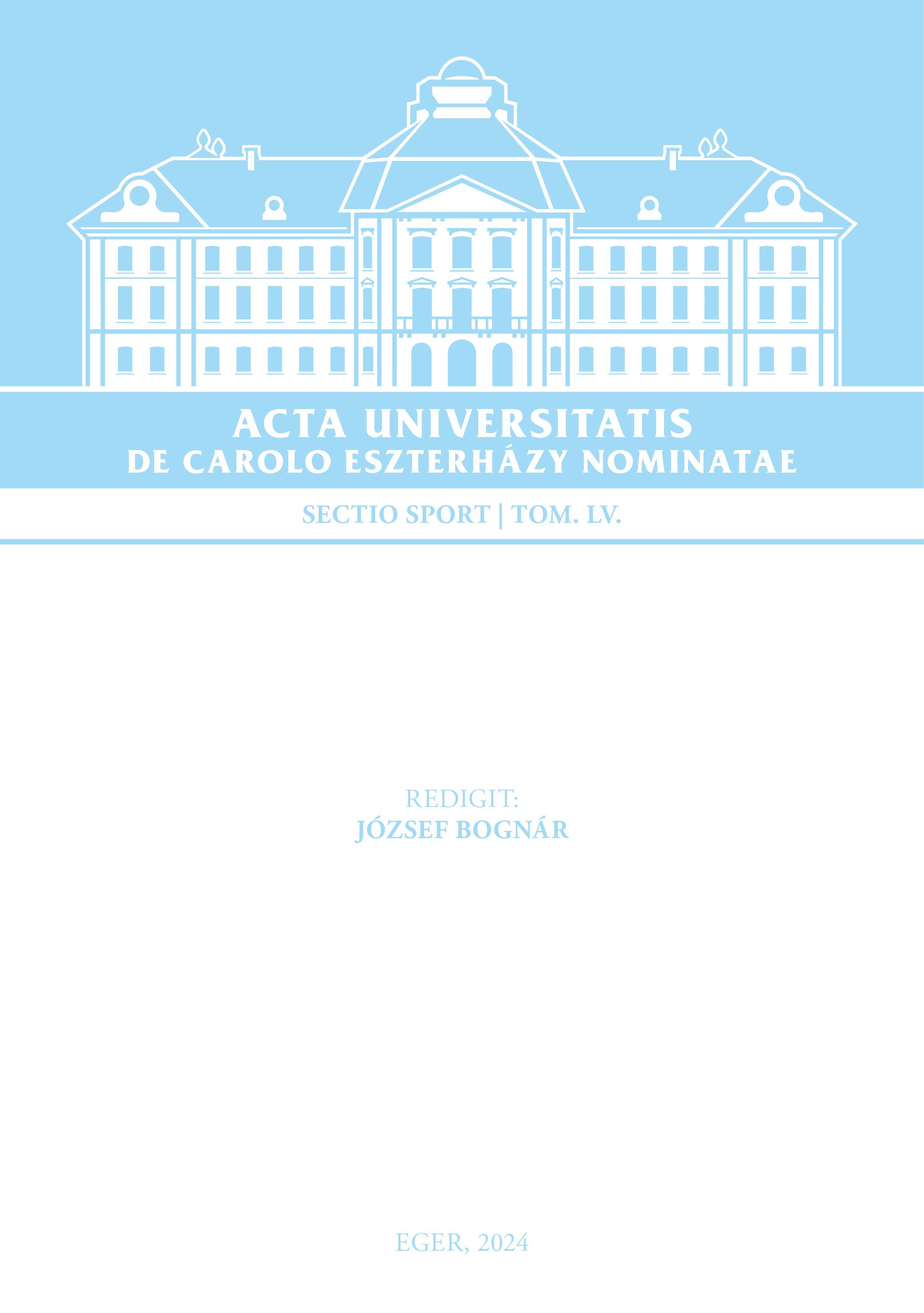TALENT MANAGEMENT FOR YOUTH FOOTBALL PLAYERS
THE ROLE OF THE ENVIRONMENT IN ACADEMIC DEVELOPMENT
DOI:
https://doi.org/10.33040/ActaUnivEszterhazySport.2025.55.39Keywords:
football, talent development, sport academy system, environmentAbstract
In the talent development system of football academies, in addition to sporting activities, young athletes also benefit from systematic influences from educators (Bognár and Csáki, 2020). The sporting environment contributes to the development of the athlete’s personality and character in a complex way, while supporting a successful career in sport (Kiss et al., 2019). The role of coaches and parents in the process of youth training is of paramount importance in both forming the foundations of sporting habits in young people and ensuring continuous development (Kiss et al., 2021). The Athletic Talent Development Environment model highlights the role of personal environment, organisational support and the wider external environment in the development of athletes and talent development (Henriksen, Stambulova and Roessler, 2010). Based on the above, the research aims to study the importance of external factors influencing the success of football training from the point of view of coaches, parents and athletes of Hungarian football academies. T he sample consisted of coaches (n=79), footballers (n=449) and their parents (n=317) at Hungarian football academies. In the survey questionnaire, respondents agreed with statements (Likert scale 1 to 4) that focused on external influencing factors in the development of young footballers’ talent and in their becoming successful footballers later on. In addition to descriptive statistics, variance analysis was used to demonstrate differences between perceptions of coaches, parents and footballers (p<0.05). It can be concluded that coaches, parents and athletes rated the motivation techniques of the coach (M=3.68±0.51), the sports professional knowledge of the coach (M=3.67±0.52), the preparedness of the professional staff (M=3.66±0.52), the lifestyle of the athlete (M=3.59±0.60), and the psychological and moral support of the family (M=3.55±0.61; M=3.55±0.60) as the most important factors. However, respondents gave particularly low ratings to cultural support from the family (M=2.40±0.858) and the manager (M=2.59±0.87). Athletes gave lower importance to the coaches’ motivation techniques (F=18.125; p=0.000), pedagogy skills (F=40.167; p=0.000), knowledge of psychology (F=32.236; p=0.000), and moral behaviour (F=47.680; p=0.000) compared to the importance of the same factors attributed by coaches and parents. Teammates’ performance was rated more highly by athletes than parents (F=4.911; p=0.008). Parents rated academic achievement reflecting the child’s ability (F=38.096; p=0.000) and overall academic performance (F=22.396; p=0.000) significantly higher than coaches and athletes did. Coaches perceived the role of the manager (F=6.645; p=0.001) as less significant than parents and athletes did. T he study has shown that – in addition to the aptitudes – external environmental factors should be planned for in a complex way and that continuous cooperation between parents, coaches and athletes is essential. It is worth emphasising this in practice and providing professional and pedagogical support to sports organisations’ activities in this area. It is clear that further research is needed to explore and apply the possibilities and tasks regarding external environment of sports talent development.

